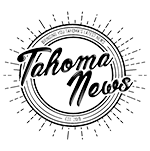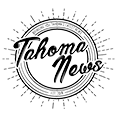Sleep=Success?
What is the Best Start Time for Tahoma?
November 2, 2017
It’s 8:00 am and students 20 minutes into first period are having a hard time keeping their eyes open as the teacher hands out the classwork.
What time school should start has always been a debatable topic. A study conducted by the Center for Disease Control (CDC) and the U.S. Department of Education, concluded that 8:30 is the optimal start time for secondary schools. Allowing schools to start later helps to increase academic performance in students and also lowers the risk of health concerns.
Students and staff at Tahoma High School were interviewed and gave their opinion on the matter; and whether or not they supported the new start time of 7:40.
The Center for Disease Control ran a study for middle and high school students during the school year of 2011-12, with the goal of figuring out what is the best start time for students in secondary school.
The CDC concluded that “Middle and high schools should aim for a starting time no earlier than 8:03.”
Jodi A. Mindell, an expert in sleep disorders at the Children’s Hospital of Philadelphia, supports the idea that teens need more sleep. “It is recommended that high school age teens should get at least 8 hours of sleep per night,” said Mindell.
However, when a senior statistics class at Tahoma High School was surveyed, those 28 students averaged a shocking 4.5 hours of sleep per night. Well short of the 8 hours recommended by Mindell.
Getting the right amount of sleep at night is imperative to success in and out of the classroom. The CDC sleep study connected the idea of lack of sleep and other risk factors for poor performance from students, finding that Insufficient sleep has been associated with adverse risk behaviors, poor health outcomes, and poor academic performance.”
However, Tahoma High School bells ring at 7:40. 23 minutes before the recommended earliest start time suggested in the CDC report. Students and staff at Tahoma High School were interviewed and gave their opinion on the matter; and whether or not they supported the new start time of 7:40.
“If school started later I would definitely get more sleep, even an extra half hour would be really nice…I think 7:40 is a little early because it’s really hard for me to wake up in the morning,” said senior Nick Dazell.
With the growing school and district size, keeping the start time at 8:15 posed challenges to the school district. A possible downside to pushing the start time back would be an increased cost of transportation and the changing of bus routes.
Gretchen Wulfing, Social Studies teacher at Tahoma High School, acknowledged the practicality of the earlier start time.
“The reasons were logistics, transportation, financial, and some families have expressed a need to have high school students home to babysit their young siblings in the afternoon. Because of the way the buses work, one of the schools needed to start early,” said Wulfing.
Also, not all of the fault can fall to the earlier start time. In some cases the students are the ones to blame if they stay up later than they should, which drastically limits the quality of sleep they will have.
Athletics also pose a problem, with teams needing to be dismissed early for away games or matches, those players would end up missing more of class with a later start time than one that starts earlier.
However, for any school, academic performance should be priority number one. When schools start well before the recommended time, there are many students who cannot put their best foot forward.
The issue of school start time is one that the Tahoma School Board looks to revisit this year.



Jared Watson • Dec 13, 2017 at 1:56 pm
This is exactly what I’ve been saying for years. I am glad this is getting attention. Great article, hope to see more like this.
Andrew Bruneel • Nov 3, 2017 at 11:53 pm
Nice article Austin! I liked how you interviewed Nick and Mrs. wulfing to support your argument, we should definitely get the 7:40 school start time pushed back for next year.
Brody Magbaleta • Nov 3, 2017 at 11:20 am
Nice article Austin! Way to use statistics to back up your argument! I agree that the 7:40 school start time should be pushed back so kids can perform to their best ability!
Nick Dazell • Nov 2, 2017 at 10:45 pm
I’m sure attendance in first and fifth period is also negatively impacted by the earlier start time. Probably doesn’t help the “attendance matters” thing we’ve been working on. Great article.
Robyn Grant • Nov 2, 2017 at 7:29 pm
Very interesting read. Great idea to survey the statistics class. Was surprised to learn Nick is not a morning guy!
Kyle • Nov 2, 2017 at 11:50 pm
Same! I always thought that Nick loved mornings
Hannah G • Nov 2, 2017 at 7:26 pm
I am impressed, Austin! It is clear you put a lot of time and effort into this piece with all of the research included in your post. As a college student who is often sleep deprived, I can fully relate and agree that 8 hours of sleep is needed to learn and absorb. This is why we do not have academically straining classes starting before 8 am at my university! Good job!